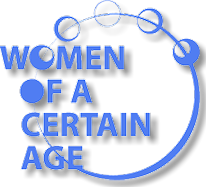
Medicinals
Estrogen is Good For Your Brain
by PJ Hennessy 2003
A preponderance of data points to estrogens as both neurotrophic and neuroprotective (that is, estrogens guard the growth and function of healthy nervous tissue). They work to increase cerebral blood flow, mediate and modulate neurotransmitters, and protect against cell death. They also act as anti-inflammatories and antioxidants. These many multiple beneficial effects support their use as a preventative for cognitive decline of all kinds. The current research suggests estrogens work best when brain tissue is still healthy – once decline sets in, the results of their use are less favorable.
As a midlife woman, it is hard not to feel as if one is ducking down beneath the crossfire of experts dueling over what is best for us. Each new media blast seems as another conflicting piece to the puzzle of how to best manage our health. The Women’s Health Initiative Memory Study (WHIMS) and the subsequent media chatter have prompted many women to just stop HRT or to fearfully continue. This summary is an attempt to clarify what estrogens actually do in our brains and to reassure you. The latest word continues to be that estrogens’ benefits may be safely enjoyed when balanced with a bio-identical progestin and when both are regularly monitored.
Let us begin with information from basic science research which tells us much. There are estrogen receptors in the parts of our brain most vital for learning and memory. They act to facilitate storage of memory by actions best described as augmenting synaptic plasticity and excitability and enhancing and modulating glutamate receptors (i.e. they turn on the brain). When P.E.T. scans are used to study cerebral blood flow (a sign of brain activity), estrogen users show an increase in brain circulation when performing cognitive tasks when compared to nonusers. Estrogens also enhance the actions of all the major neurotransmitters: acetylcholine, serotonin, dopamine, epinephrine, and norepinephrine.
Alzheimer’s Disease (AD) is one of the most common of the dementias and sadly more likely to affect woman by a ratio of almost two to one when compared to men. Its hallmark is the presence of a substance amyloidal protein (AB). This AB is felt to be the trigger in toxic plaques found in Alzheimer’s that lead to inflammation and premature nerve cell death. (Viruses such as cytomegalovirus and herpes simplex viruses have also
been associated with these changes.) Estrogens modify such an inflammatory response and protect neurons from early death. Estrogens also decrease the blood vessel changes in Alzheimer’s by lowering homocystine levels and increasing HDL (good) cholesterol. Both of these actions decrease premature atherosclerosis or narrowing of the blood vessels.
There are numerous studies showing reduced risk of Alzheimer’s with the use of estrogen. The most elegant and understandable study is research from Utah called the Cache Creek Study. Using a longitudinal approach, approximately three thousand women over age sixty-five were interviewed at baseline about their HRT use and categorized into the following groups: users of three years or less, users of three to ten years, and users of more than ten years. Three years later, the women were screened for dementia using a complex array of questions and actual hands-on examinations by geriatric psychiatrists and neuropsychologists. Conclusion: the women in the ten-year HRT and longer group had a five-fold lower risk of Alzheimer’s essentially that of men of the same age. However, an important new detail of this study was the observation that there was a limited window of time during which HRT reduces risk of Alzheimer’s. Early use, i.e. at the time of menopause, provided the most benefits and the study’s authors theorized that HRT may be useful only before there are extensive changes notable in the brain.
Unanswered Questions:
Estrogens are brain-beneficial, but what kind of estrogens or progestins? Most research has used conjugated equine estrogens (Premarin) or estradiol. Neither is identical to the three-part cocktail of estrogens that bathes our bodies from puberty onward. The progestin question is confounded by the use of synthetics in most research to date. Newer designer estrogens called SERMS are being held as the next great new thing despite their multiple side effects.
Expect to hear more. Please listen carefully and skeptically to articles in the media.
(Citations –Zandi et al. HRT and Alzheimer’s. JAMA. Volume 288, #17. November 2002.
Cholerton et al. Estrogen and Alzheimer’s. Drugs and Aging. Volume 19. #6. pp 406-427. 2002.)
© Copyright 2013 - 2018 by Pat Hennessy MD MPH Design by Victoria Young Maciulski